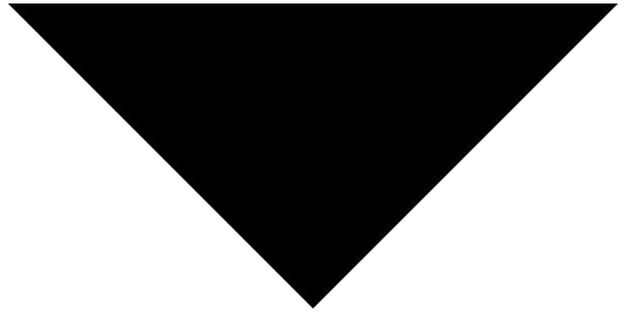RESOURCES
Educators

The My Life, My Quit program is a free and confidential service developed by National Jewish Health, the nation's number one respiratory hospital, for teens who want help quitting all forms of tobacco including vaping. Our tobacco treatment specialists have completed extensive training on adolescent cognitive and psychosocial development from a psychologist and professor at Stanford University who specializes in adolescent tobacco prevention.
 By enrolling, teen participants receive:
By enrolling, teen participants receive:
- • Five, one-on-one coaching sessions usually scheduled every 7-10 days. Coaching helps teens develop a quit plan, identify triggers, practice refusal skills and receive ongoing support for changing behaviors.
- • Self-help and educational materials designed for teens, with input from teens.
- • Additional support by phone, by text message or by online chat.
As an educator, you have as much (or more) contact with teens as their parents and healthcare professionals and the messages you provide often shape their behavior choices. Your promotion of the My Life, My Quit program is important to teens looking for resources quit using tobacco.
National Jewish Health operates tobacco quitlines in numerous states around the country and has helped more than one million people with their quit attempts.
Teens want their teachers and school personnel to support their decisions and they need your help to stop using tobacco products, including vaping devices and e-cigarettes. If a teen asks you about tobacco or seems interested in quitting tobacco, here is some information that may help shape the conversation:
- • Nicotine addiction can happen very quickly.
- • All tobacco products, including vaping devices like e-cigarettes, contain nicotine and are addictive. Many teens believe vaping is not tobacco. Let them know vaping is tobacco and it has the same addictive properties whether they are smoking cigarettes, e-cigarettes, or vaping.
- • The longer a teen uses nicotine, the more addicted they are likely to become, and the harder it will be to stop.
- • Medications used for quitting tobacco have not been proven effective for teens. If a teen asks about quit medications, refer them to a healthcare professional who can help decide whether these medications might work in their individual situation.
When changing any behavior, it can take several attempts to establish a new routine. Slipping back into the old behavior is a natural part of the process. Don't get discouraged! Help the teen understand which behaviors or situations led back to tobacco use and come up with a plan for how to avoid tobacco in the future. Continue to provide support and help the teen by encouraging them to restart their quit attempt.
You cannot force anyone to change their behavior, but you can support their plan. Ask what the teen needs from you and how you can help. This shows you care, you are ready to listen, and you want them to succeed.
While the decision to quit tobacco is always one teens must make themselves, there are several ways you can help promote the My Life, My Quit program:

- • Let teens know you are concerned about the impact of tobacco use, including vaping, on their current and long-term health.
- • Tell them you want to support their plan to stop and ask if they will sign up for the My Life, My Quit program. Be sure to mention it is free and confidential.
- • If they are not willing to enroll right then, provide them with information about how to enroll and let them know they have support to help them quit.
- • If a teen is ready to get started, they can text, call or enroll online. It's fast and simple.
- • Some teens may want your help taking the first step of calling or sending the text. But remember, they need to do the work in order to be successful.
 Many schools are struggling with how to address the epidemic of vaping in their communities and in their school buildings. In 2018, approximately 20% of teens nationwide reported current use of electronic nicotine products, and school administrators recognize suspending 20% of high school students is not a realistic response.
Many schools are struggling with how to address the epidemic of vaping in their communities and in their school buildings. In 2018, approximately 20% of teens nationwide reported current use of electronic nicotine products, and school administrators recognize suspending 20% of high school students is not a realistic response.
Introducing My Life, My Quit as an alternative to school suspension is an option. No one wants to be forced to participate in a program to change their behavior, especially teens who get caught using tobacco products. Our coaches understand this and are specially trained to engage teens who have been referred for help by parents, educators, and the justice system and are required to complete a tobacco treatment program as an alternative to punishment.
My Life, My Quit is based on the established and evidence-based telephone coaching quitline model that has proven effective for adults. Our teen program was developed with teen feedback and has been tailored to meet the unique needs of teens. Coaches combine cognitive-behavioral techniques with motivational interviewing that has been proven effective for changing teen behaviors with drug, alcohol and tobacco use.
After completing five coaching sessions, we send a printed watermarked certificate directly to teens to reduce unauthorized duplication and to prove they completed the program. Because of regulations governing privacy of information, we only send the certificate to the teen who completes the program.
Behavior change is hard work and many people need help more than once for a new behavior to stick. Teens can re-enter the program as many times as needed and each time, they are eligible for five coaching sessions.
We recommend when My Life, My Quit is used as an alternative to suspension, the tobacco use infraction be removed from the student's permanent record. This helps build trust with teens and motivates them to engage in the program, knowing there is a reward for completion.
There are many resources available to develop tobacco-free programming in your school.
- • The Stanford Tobacco Prevention Toolkit is a comprehensive resource for educators. It incorporates evidence and theory-based strategies for tobacco prevention. Curriculum is available for educators to deliver group programs for teens in school. Information from the Toolkit was used to inform development of the My Life, My Quit program.
- • The American Lung Association has created a toolkit for educators and school administrators to create tobacco-free school policies.
- • The Centers for Disease Control and Prevention have created several presentations and other media for the public regarding tobacco products including e-cigarettes.
• The Surgeon General of the U.S. Public Health Service has published information on e-cigarettes and has termed teen vaping a public health epidemic.
- • The FDA has partnered with Scholastic to create a clearinghouse of information using the Real Cost campaign. Sample lessons, posters and additional information on the dangers of vaping are available.
Free Promotional Materials
You can download and print My Life, My Quit posters to display in your classroom and school. Or, contact your state health department for printed materials to be mailed to you. Additional marketing and education materials are available. Email healthinitiatives@njhealth.org to request a Marketing and Media Toolkit. All materials on the mylifemyquit.com website are copyrighted by National Jewish Health, and are available for use without further permission by citing National Jewish Health as the source.
To refer a teen to your state's My Life, My Quit program, click hereSTART YOUR QUIT TODAY
Enroll Online
Start My Quit
